Seville
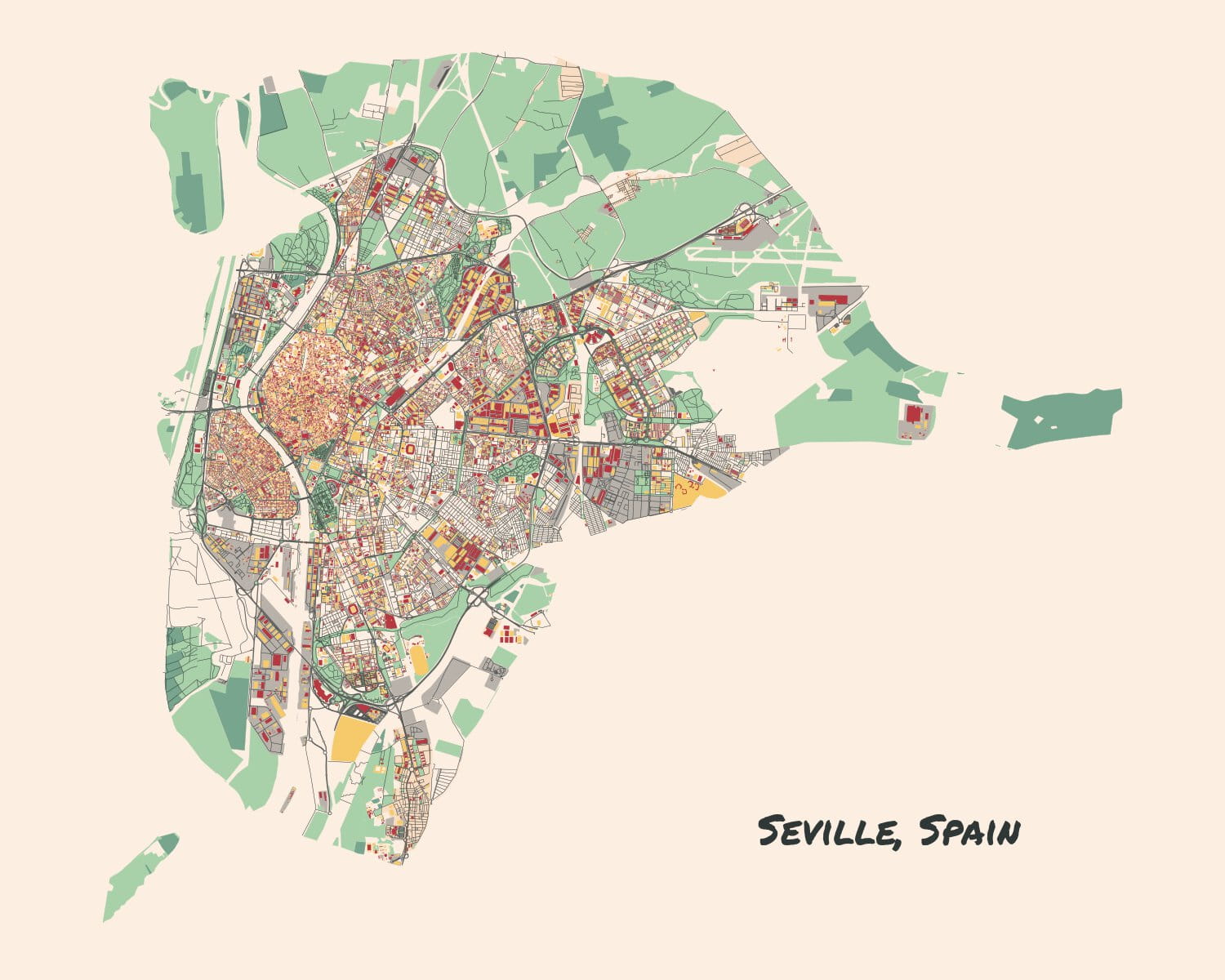
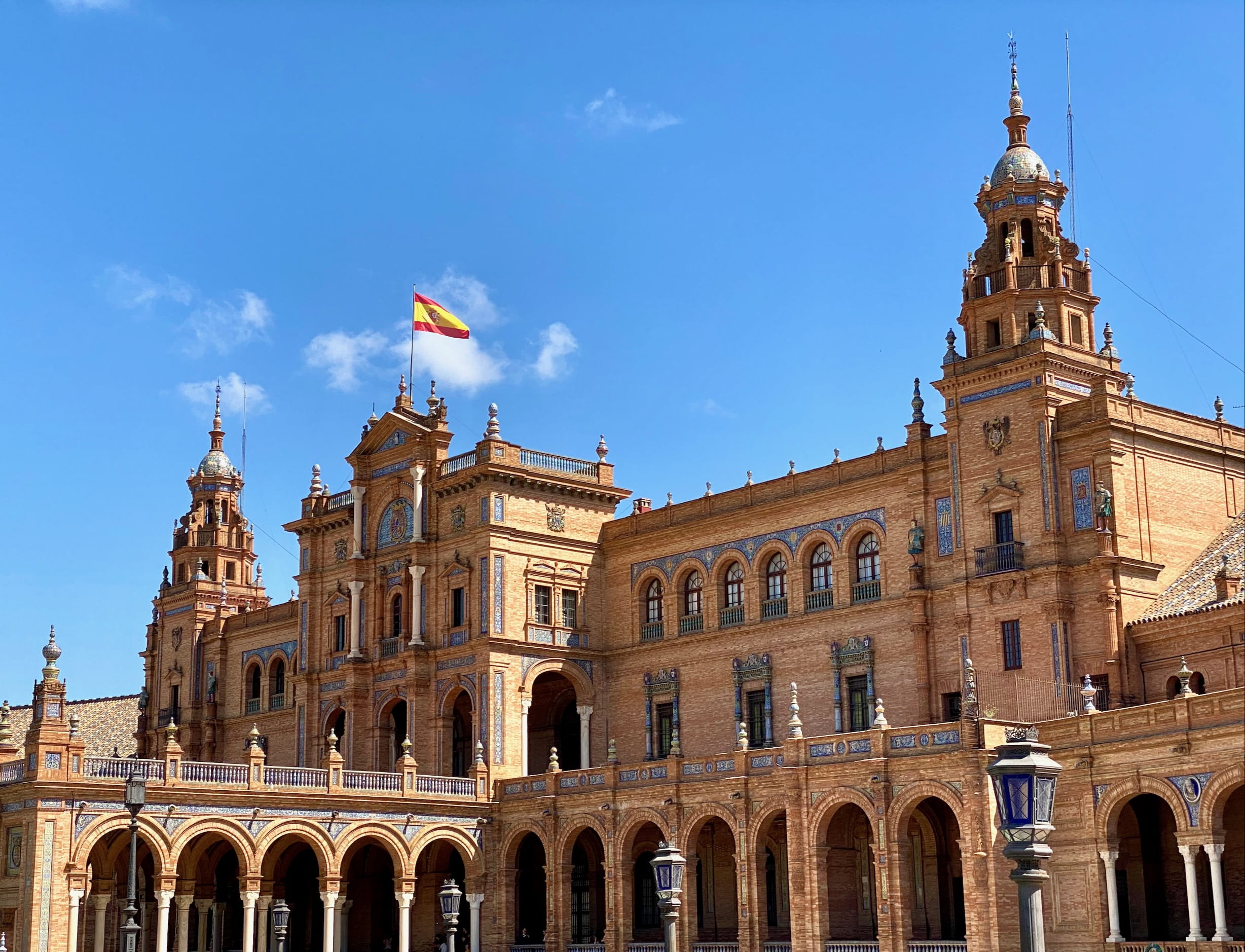
A lovely feature of Spanish cities seems to be big public plazas you can go and hang out in. Art and water features make them pleasant.
Seville’s big plaza has gorgeous architecture around it, and it—the plaza—is massive.
It’s also completely taken over by tourists and people selling them trinkets and horse carriage rides. I think the locals have found smaller plazas to hang out in.
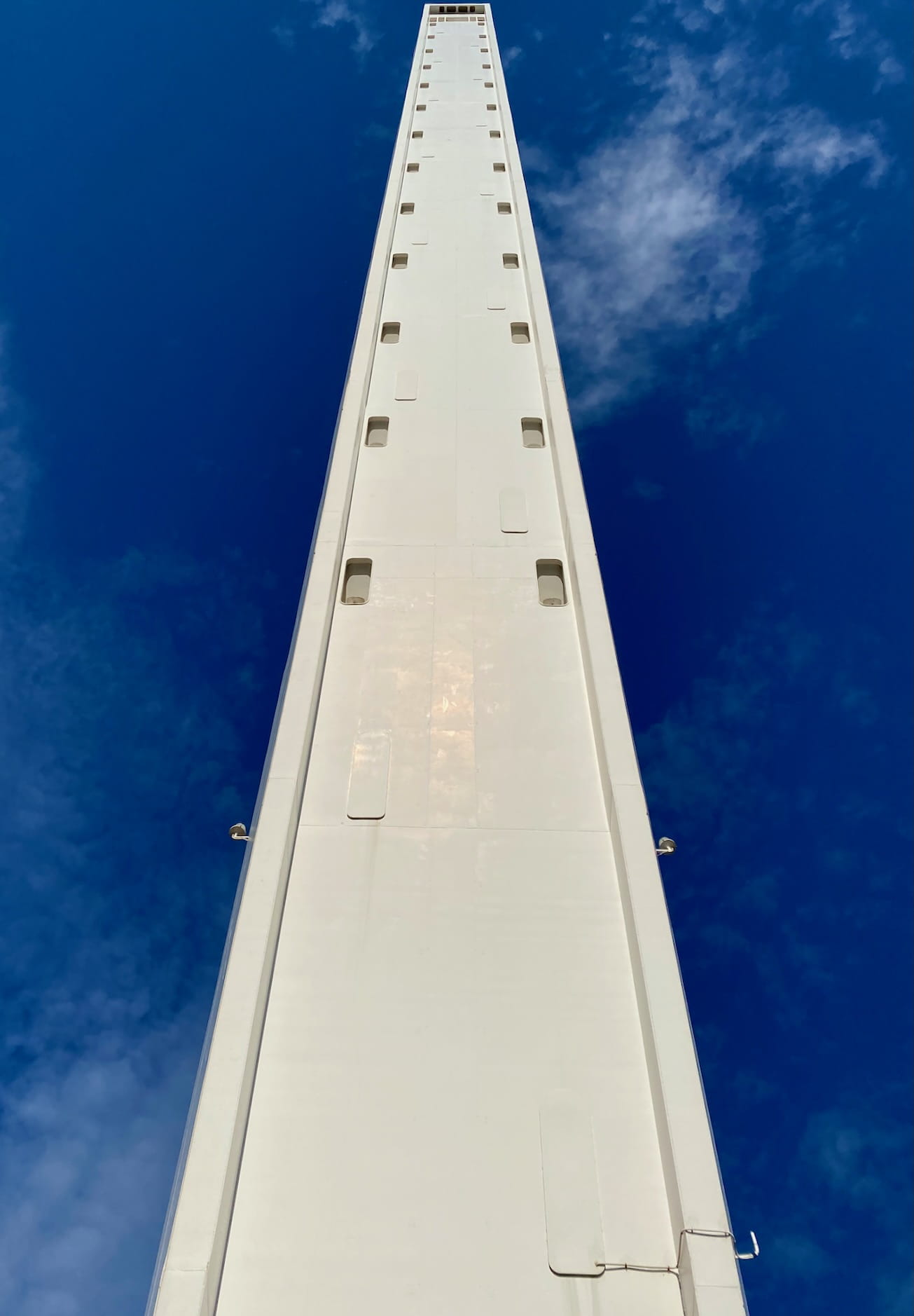
A bunch of Spanish public parks emphasize paved paths. You walk around bits of delicately manicured trees and some water features. Not my cup of tea to hang out in (just not enough living matter), but pretty.

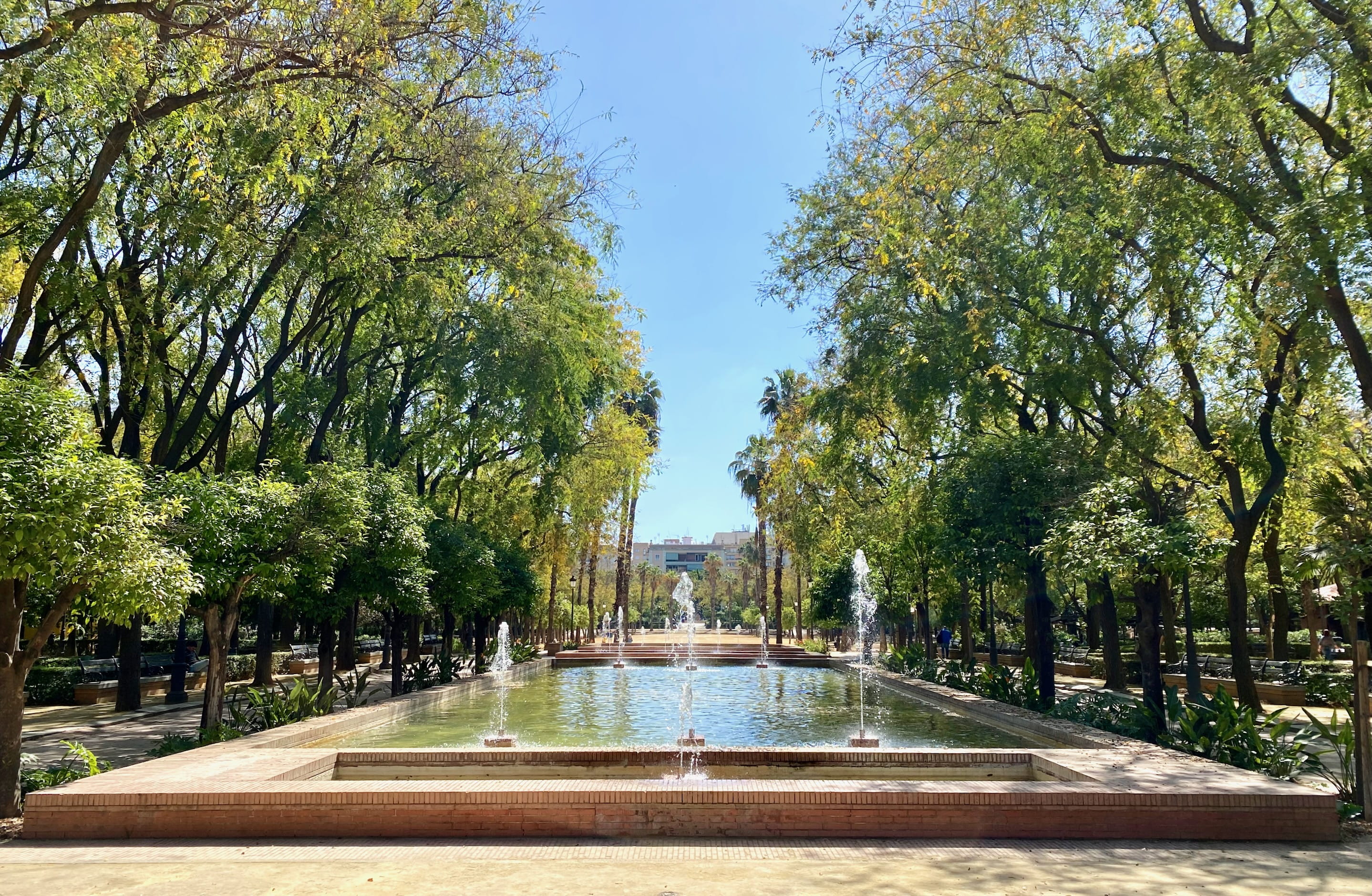
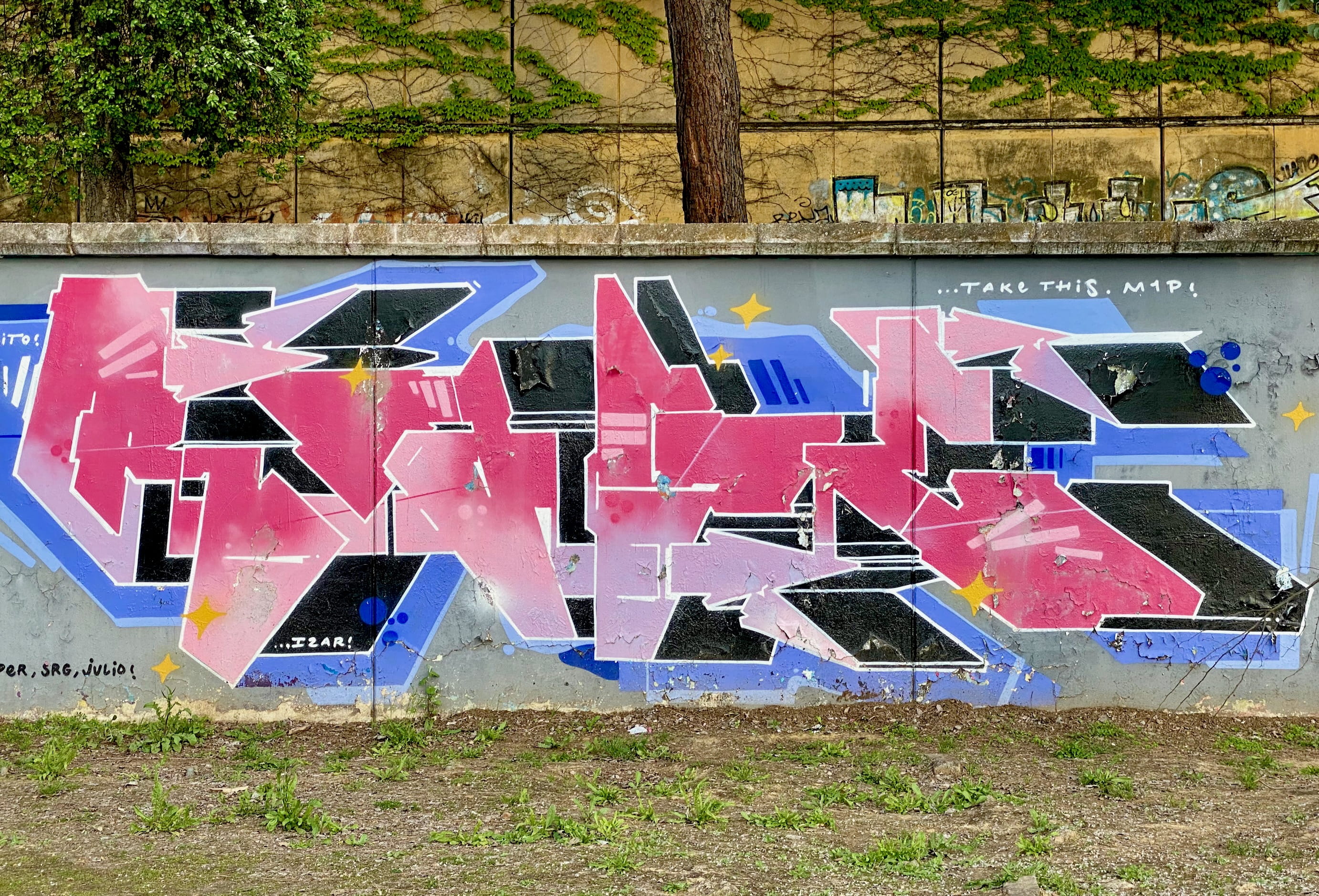
I love the lettering here.
Now, tinto de verano:
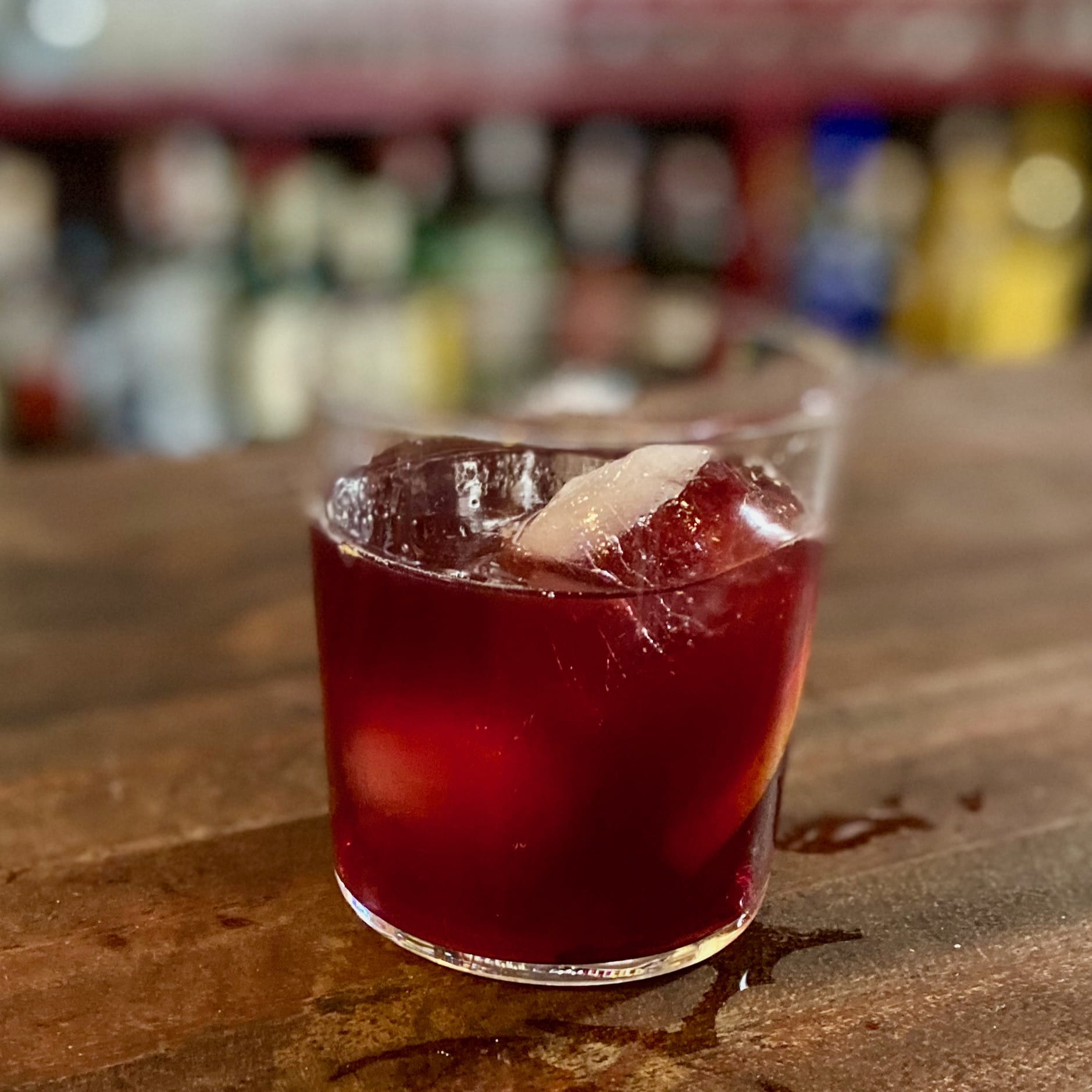
Aside: I am learning of a growing list of subjects that iPhone’s portrait mode botches. The back half of the glass has been turned into “background” and blurred.
Tinto de verano:
- to a cup of ice
- add 1 part red wine
- optional: remove the wine bottle’s label, either out of respect for the winemaker, or because you’re buying in huge jugs and just refilling your counter bottle
- add 1 part lemon-lime soda
- the brand here is completely lost to me
- garnish with an orange slice
- revel in disbelief at how delicious this is
I appreciate Andalusian tapas bars in hindsight. But when we first arrived, they mostly awakened us to the reality of our poor Spanish and cluelessness.
E.g., first evening:
We approach an establishment, and there are dozens of people standing. They’re utilizing every free micro slot of table space and shelving to balance drinks and plates. The bar has one or two awkward openings, through which people are ordering (can we sit there?). A single server rushes around the two rooms and patio, somehow utterly unconcerned with the patron-to-him ratio. Our hunger competes with our strong desire not to do things wrong, commit any faux pas.
(Is there… a line? A list of names?)
After deciding (probably not) and miraculously finding an empty two-person sliver in room two, the bartender will eventually ask what we want, but without looking at us, and using words we don’t yet know. Because she is doing seventeen other things simultaneously, she easily leaves for a while when we don’t reply.
Huge hunks of dead pig are hanging and also being carved into paper thin strips. Jamón ibérico. They look delicious.
Once we get a round of cañas (small glass of beer—no further specification needed) and successfully acquire our first plates from the food menu (handwritten, mostly unknown words), embarrassment slowly subsides.
It’s funny, in hindsight, how normal we must have been to them: plenty of tourists came, and it turned out the bartender’s English could have more than compensated for our Spanglish. And funny, still, how stressful the whole thing was.
This begins, again, re-learning the art of being gracefully uncomfortable: be patient and kind and happy when you are clearly being a buffoon and there’s not much you can do about it but take it.